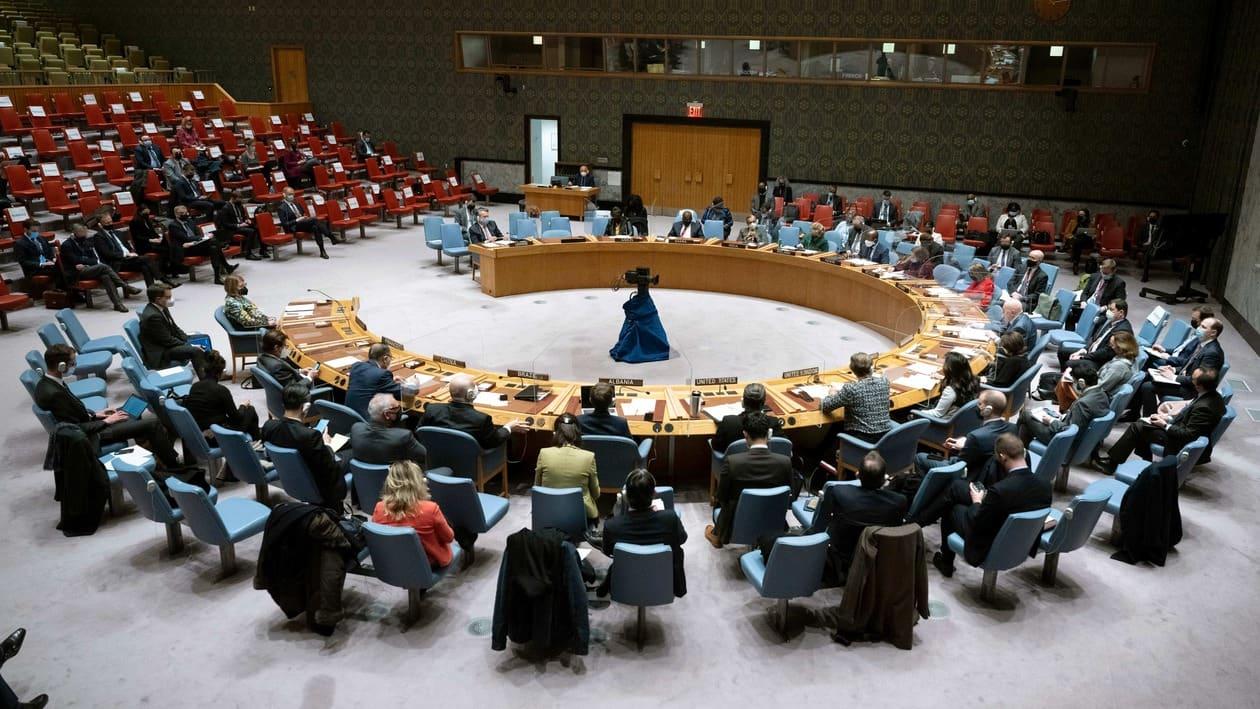War is looking more and more likely between Russia and Ukraine as the geopolitical tensions between the two countries have escalated in the last few days. Lack of progress in talks between US and Russia and the latter now ordering troops into breakaway regions of eastern Ukraine has further worsened the situation.
Russian President Vladimir Putin recognised two breakaway regions in eastern Ukraine as independent on Monday and ordered the Russian army to launch what Moscow called a peacekeeping operation into the area, reported Reuters. It added that Putin told Russia's defence ministry to deploy troops into the two regions to "keep the peace" in a decree.
At an emergency meeting called by the United Nations Security Council post the development, India said that the escalations of tensions between Russia and Ukraine were a matter of great concern and de-escalation of the crisis should remain a priority.
"The escalation of tension along the border of Ukraine with the Russian Federation is a matter of deep concern. These developments have the potential to undermine peace and security of the region," TS Tirumurti, India's Permanent Representative to United Nations, said at the UN Security Council Meeting.
Markets
Indian as well as all global markets have faced the brunt of that.
While Indian markets have lost around 3 percent since February 14, when the crisis first came to light, Japan's Nikkei has lost over 4 percent, China's Shanghai is flat but in the red and the US markets have lost over a percent.
Going ahead, markets are likely to remain under pressure till an agreement is reached. Further, investors will also move more towards safe-haven investments and developed markets under a war-like situation. Indian markets will also be impacted by rising inflation (due to a surge in crude oil prices) and a sharp rate hike cycle by the US Fed.
Crude Oil
The biggest impact of the war will be focused on the crude oil prices. Oil prices have already jumped to a seven-year high, safe-havens rallied and US stock futures dived on Tuesday as Europe's eastern flank stood on the brink of war. The prices have been above $90 per barrel for over a week now.
The continuous rise in crude oil prices will not only impact the inflation in India forcing the central bank to raise rates more aggressively than anticipated but also increase India's current account deficit and mess with the government's budgetary calculations.
As per the economic survey, the government was hoping the crude oil prices to be in the range of $70-75 per barrel in FY23. Experts believe that even if the war is somehow stopped, the prices are likely to remain high in the foreseeable future.
According to the US Energy Information Administration (US-EIA), Russia produces 13 percent of the total global crude oil production, which is almost half of the total crude oil production in OPEC in the middle east region. So a war scenario will lead to a fall in the supply of crude oil thus leading to a further surge in its prices.
Rupee
The rupee declined 24 paise to 74.79 against the U.S. dollar in trade today on Tuesday, amid weak risk appetite as tensions escalated in eastern Europe. Forex traders said sustained foreign fund outflows, a lackluster trend in domestic equities and elevated crude oil prices weighed on investor sentiment.
If the US dollar continues to strengthen and the rupee keeps declining, this will lead the foreign investors to remain cautious and continue selling Indian equities. Till now in February, foreign portfolio investors (FPIs) have withdrawn ₹18,856 crore from the Indian equities amid geopolitical tensions and chances of a rate hike by the US Federal Reserve.
Most experts believe that the rupee will remain weak at least till Russia and Ukraine reach a definitive agreement. The domestic currency is likely to reach 76-77 per dollar on the back of high crude oil prices and an aggressive rate hike by the US Fed will support the dollar.
Gold
Gold has witnessed a sharp upside over the past few sessions. It has seen an upside of almost $100 since the end of January’22. Inflationary concerns and rising uncertainties have been the main reasons for the rally in the precious metal.
Its demand is back to pre-Covid levels after witnessing a sharp decline in the last 1 year. Russia’s military activity on Ukrainian border's and interferences
of US in the matter is increasing distress in the market making investors move toward the safe-haven gold.
Experts believe that a continued war-like situation between Russia-Ukraine will boost the precious metal's prices further.
Trade
India is one of the leading export markets for Ukraine. The volume of trade in services between Ukraine and India in 2020 amounted to 104.57 million USD. Exports of services from Ukraine to India decreased by 21.8 percent and imports from India to Ukraine decreased by 5.9 percent.
If Russia does invade Ukraine, US and UK are likely to impose economic sanctions on Russia. These sanctions may also prove to be somewhat problematic for India.
